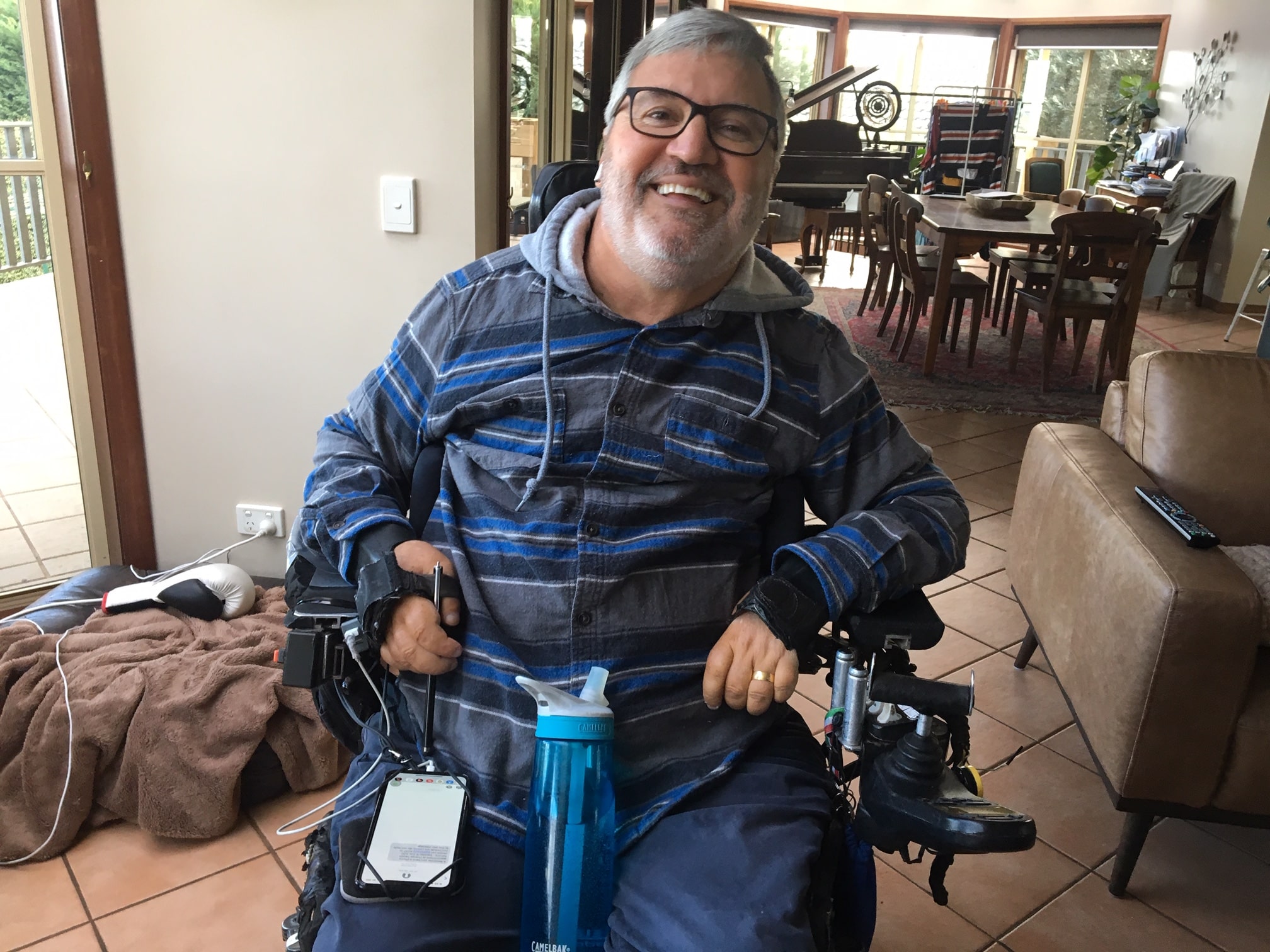
Rocky's care through NDIS funding has changed his life. Rocky sustained a brain injury from playing rugby union.
In 1996, at 29 years of age, Rocky Mileto sustained a severe spinal cord injury from a tackle in a game of rugby union.
“I had the ball, it was one on one. Just the wrong angle, wrong timing,” Rocky said. “It was that easy, that simple. Most injuries, rugby or rugby league injuries, are really simple.
“You could be in a car accident and roll 15 times and have a broken collarbone, but you bump your head playing rugby and you have this level of disability. And everything’s gone, nothing in the fingers, no feelings, no sensory or motor response. I can’t feel my legs, can’t move my legs.”
Over the past 23 years since his accident, Rocky has seen many changes in the disability support sector and has even been inspired to start a charity, Hearts in Union (heartsinunion.com.au), which supports people injured through playing rugby union.
Since joining the National Disability Insurance Scheme (NDIS) in June 2018, Rocky has been supported by Social Futures’ Local Area Coordination (LAC) program in his home town of Orange.
Now, as Rocky goes through the NDIS plan review process, he reflects on how his life has changed and what the NDIS has meant for him, his wife and their 12 year old twin sons.
He reports that the care made available to him through his NDIS funding has been of great benefit to him and his family.
“The care is absolutely fantastic – you get more care,” Rocky said. “That is without a doubt better.
“If you’re not well and you’re in bed, you need someone to sit there just so you don’t have a blocked catheter and autonomic dysreflexia (a form of hypertension that can be life-threatening). To avoid that is really important – you don’t want to be on your own and not able to help yourself.
“Because the level of personal care I need is now fully funded, it allows my wife to go to work and that in turn reduces the financial pressure on us,” Rocky said.
Rocky is currently looking forward to undertaking some home modifications and receiving new equipment, especially his long-awaited bed. All care and home modifications are supported through NDIS funding.